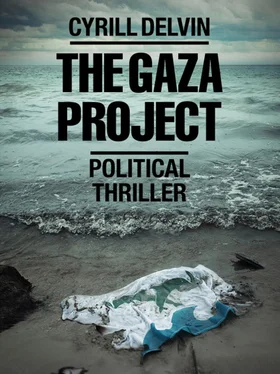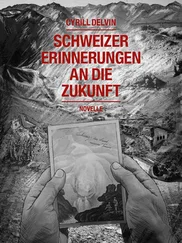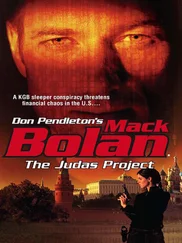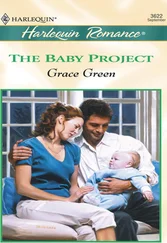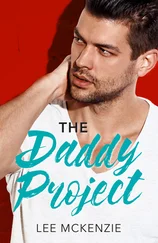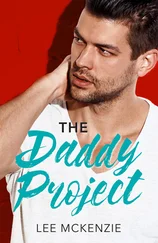»I hate those damned Arabs!« he finally shouted. »They killed my family!« That said it all. For the first time ever Abarron had openly expressed his hatred. His whole body shook uncontrollably and he tried to fight back his tears. »I know al-Jabiri is no murderer, but he is… an Arab,« he stammered.
Weisz looked at him without batting an eyelid. But he was suddenly unsure if he hadn’t been wrong about the boy: He’s still only a child, and he’ll learn how to come to terms with his feelings.
»How do you know?«
»What?«
»That al-Jabiri isn’t a murderer?«
»But…« he lowered his head.
»I can feel the rage and the hatred inside you. And I understand both. But let me give you a piece of advice you should heed. When you are angry you just rashly react to your circumstances; to the fact that an Arab killed your family. Your rage blinds you. Hatred, on the other hand, is your decision. Give some serious consideration to how you decide. And now go.« Weisz abruptly ended the conversation and pointed to the door.
Abarron trembled when he left the office with a strange sense of foreboding.
It’s nearly time – now or never. Orphaned, family killed in a suicide bombing – the perfect prerequisites. He was also intelligent. An ideal combination which could be extremely useful to the secret service later on. But such a promotion required a stable environment and, most of all, a focussed contact person. He would provide the boy with both.
In the following weeks, Abarron changed. He appeared depressed and withdrew even more into his shell than usual. His pals didn’t notice. Since their last stunt they’d hardly ever met and Abarron wouldn’t have dreamed of telling David or Samuel about his chat with the deputy head. The three older students were too preoccupied with themselves. It was nearly the end of term and it was more important for them to concentrate on their exams. Besides, they also invested a lot of time chasing girls.
Abarron found it hard to concentrate during his lessons. Time and again he would see the images of that terrible day on the playground when he had to witness his family being blown up. He was unable to suppress the memory. And when he tried to divert his thoughts, all that came to mind was the Arabic words written on his leg in his own blood.
But one night he dreamed he was languishing in the desert. A lone, emaciated wolf was stalking him in ever smaller concentric circles. Abarron was too weak to flee and the wolf was coming closer and closer. Abarron Preiss, what are you waiting for? the beast grinned in a menacing, yet soothing tone of voice. Until he stood right in front of him and showed his fangs. The gruesome, grimacing skull from his nightmare laughed at him through the wide open jaw and melted into a single monster with the wolf and the deputy’s face. Come to me…
When the boy woke up he didn’t dare open his eyes at first. By now he was grateful for every dreamless night. Rage is blind, hatred is a decision. He still didn’t know the meaning of the vice principal’s words. But he started to suspect that they were somehow linked to his future. Should I not hate the Palestinians for killing Eli? Do I have to forgive the Arabs? Is that what he had meant? But it wasn’t a straightforward decision like choosing what T-shirt to wear in the morning. That wasn’t particularly difficult because he always just took the one on top of the pile in his wardrobe. He was intelligent enough to see that this was about something else. But what?
Before the end of term, he gathered all his courage to ask Weisz. The door to the man’s office was slightly ajar and Abarron was about to knock when he heard the vice-principal’s voice.
»Yes, General Markowitz. Yes, Sir. I will assemble a suitable team… Who do I report to? … Yes, Sir!«
Weisz put down his mobile phone and closed his eyes for a moment. Then he noticed Abarron outside his door. »Come in,« Weisz said testily, annoyed with himself for not having closed his door properly. »What do you want?«
»Mr Weisz, you said that I have to decide if I hate the Arabs or not. How shall I do that?« After a short pause he added: »Why should I not hate the Arabs?«
Weisz’s expression relaxed: »Anger is like a prison. It stifles you, and you can no longer see the world as it is. That way it dictates everything you think and do and you end up being a prisoner of your rage.«
»I don’t understand.«
»To scrawl slogans on the wall out of rage, to use your fists or weapons is easy. It doesn’t change the fact that the Arabs are here.« Weisz took his time before he continued: »If you want to effectively deal with the Arabs in our country who murdered your family, you need a clear head. You have to be free to think and act. And you’re only free when you master your hatred, not if you are a slave to your rage and your emotions.« He took a step closer to Abarron: »You don’t have to decide if you hate the Arabs or not. They took away the people you loved. The question is how you want to use your hatred. Do you want to throw stones blinded by your fury and then serve in an army condemned to inertia? Or do you want to make sure that no Israeli will ever have to suffer the loss of a loved one again? That is what you have to decide.«
Abarron began to understand.
Weisz had been right about the boy. His poison was starting to work. The boarding school’s vice-principal was actually an active Colonel in the Israeli army. That night he had watched the boys on the grounds from his bedroom window. The binoculars with the integrated residual light amplifier presented a pretty clear picture of what was going on. Usually he would have intervened when he heard the main door being opened. But when he had recognised Abarron, he had let things unfold.
Recruiting new blood was an activity nobody at the school must get wind of. The Colonel was the son of General Baruch Weisz, who had pioneered the Israeli wall strategy together with General Kemuel Markowitz. He was also an extremely good judge of character. His students always excelled in the country’s military organisation.
Abarron generally spent the summer holidays at his grandparents. He liked them, but didn’t try to get close to them. More reticent and unapproachable than before, he preferred hiding himself away somewhere in the drab settlement and reading instead of playing with the other children. As time went by it started to dawn on him what Weisz had meant. And he knew that he had already made his decision long ago. He had chosen hatred. Whatever else was buried deep inside him increasingly lost its power. His conscience tried to fool him into thinking that he’d made the wrong decision or that that it wasn’t so straightforward. But he suppressed his nagging feeling as well as he could. And he became better at it the older he got.
His grandparents were well aware how the boy was hiding behind an impenetrable wall. They also noticed how he became colder all the time. Without understanding why, they secretly hoped that their grandchild would someday avenge the injustice of that spring morning four years ago.
For weeks now southern Europe had been in the grip of an unprecedented heatwave. The numerous almond trees on Trois-Ruisselets threatened to wither and die. Charles took no notice.
»You have to see this!« Ted shouted over to him from the French doors. »Quickly! Šarīf won on the Gaza Strip.«
Charles who had been studying some documents in the garden, got up from his seat and rushed over to the chart room. The television showed live coverage from Gaza.
»…unbelievable, masses of followers of the new Palestinian Brotherhood Party, the moderate Fatḥ and the liberal Ḥamās wing have gathered in front of the government building where they are cheering Nadim Šarīf. He’s standing on the rostrum surrounded by armed security guards. There are green-yellow flags everywhere. The crowd’s going wild.
Читать дальше
